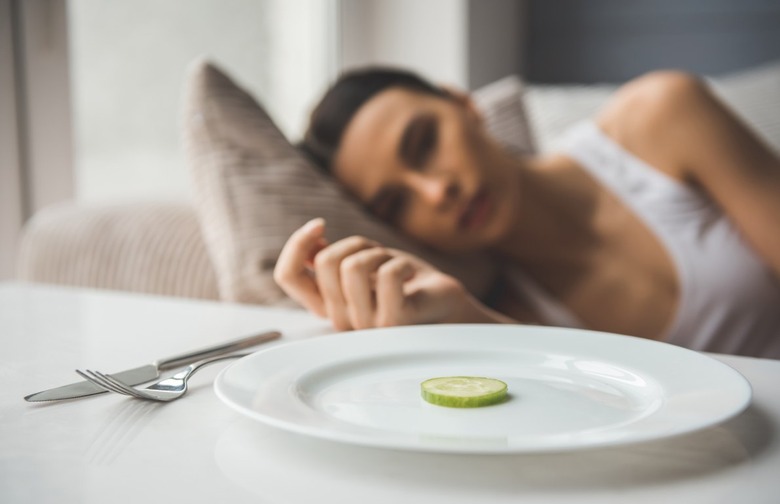10 Ways Millennials Are Unhealthier Than Their Parents Slideshow
These days, millennials get a lot of flak. With recent headlines such as "Millennials: The Me Me Me Generation" and widespread criticism of the age group for being "slackers," it's hard to deny the controversy. They're known for being tech savvy, hyper-critical, and emotionally unavailable.
But how are they doing with their health?
Health food companies are on the rise, and media coverage surrounding health and wellness has exploded. However, it is up for debate whether or not the popularity of these wellness trends really indicates that this generation is any better off than the one before it.
To the dismay of sassy young people everywhere, the evidence goes both ways. In some aspects of healthy living, millennials have the older generation beat. However, there are a number of ways that millennials are actually on the decline when it comes to their wellness. Twenty-somethings preaching health to their parents might be a little misguided; every once in a while, they could probably learn a thing or two from their parents' advice.
Eating Disorders Are More Common
The American Psychological Association (APA) confirms it: Eating disorders are on the rise. This is likely due to the negative influence of social media and advertising; however, anti-obesity marketing and extreme prevalence of dieting could also be to blame.
Over eight million Americans suffer from an eating disorder, and these conditions have the highest mortality rate of any mental illness. Whatever America is doing to this generation with how we talk about food, it isn't working.
Their Exercise Is Extreme
Steady-state cardio is on the decline and high-intensity, short bursts of exercise are proliferating in the wellness scene. SoulCycle, OrangeTheory, and Tabata are all focused on the concept of HIIT training, an exercise trend involving short bursts of extreme effort alternated with shorter intervals of rest. You may be led to believe that this method of exercise is healthier, but the evidence of injury, fatigue, and overtraining suggest otherwise.
Karena Wu, the owner of ActiveCare, a physical therapy clinic, explained her concern to the Washington Post: "A lot of millennials are doing all of these high-intensity exercises, but if you're not as conditioned as you think, you're going to put excessive stress on the soft tissue and the joint." A surge in hip injuries in the millennial age demographic confirms her suspicion.
They Are Less Aware of Ingredients
When a large sample was interviewed, only 49 percent of millennials agreed that fewer ingredients made a product healthier. The generation above them, however, had a much more assured response.
Maybe it's due to the boom of "health products" on the market brimming with chemicals and boasting low-calorie, but millennials need a wakeup call about real food ingredients and their health.
They Cook Less
A report by the Food Institute revealed that millennials spend 44 percent of their food dollars at restaurants, while baby boomers only spend 40 percent. While this isn't a dramatic difference, the implications aren't good for America's health — especially due to the poor health standards upheld by many restaurants.
They Do Less Yoga
A shocking 58 percent of yoga practitioners are over the age of 40; the baby boomers comprise the largest age demographic of those practicing yoga to date. Yoga has a number of health benefits, including stress management, an improvement in cardiovascular health, and even lengthening life span.
They Drink More
According to one study, the population aged 20 to 29 drinks sixteen percent more alcohol than previous generations at the same age.
More alcohol equals more health problems — so this isn't a great sign that millennials are on the right path with their wellness.
They Eat More Dessert
Despite Dad's love for cake, studies show that a whopping 49 percent of millennials eat dessert at least once a week — compared to only 33 percent of adults aged 45 to 54. "Millennials were the generation most likely to eat dessert this often," the results of the study explain.
The reasons why? One can speculate that it's the result of sugar cravings from artificial sweeteners or the frequency that millennials are looking at pictures of dessert online, but there hasn't been consistent research to investigate the cause.
They Have More Food Intolerances
Or at least report having more food intolerances. A recent trend in the health scene has been claiming food intolerances without seeking a medical diagnosis.
Whether this statistic is due to an increasing anxiety over food and food allergies or whether millennials really are developing weaker stomachs is yet to be determined. Either way, it's making them into complicated customers for the waiter taking their order.
They Struggle With Their Mental Health
With over 5 million college students struggling with mental health and over 25 percent with a diagnosed mental illness receiving treatment in the past year, the evidence is overwhelming that millennials are struggling. Theories have been thrown out that the increase is due to pressures at school and the economy; regardless of reasons why, millennials are experiencing a surge in anxiety that previous generations did not.
They Visit the Doctor Less Often
A frightening statistic reveals that only "just over half [of millennials] have visited a doctor's office in the past year, compared to nearly three-quarters of non-millennials." Rather than professional medical advice, the participants in the study reported seeking health information from friends, family, and the internet and were more likely than non-millennials to treat conditions on their own at home.










